|
I bring the
description of logoperiodic aerial,
calculated,
constructed
and established by me in 1999 year.

The modern requirements to the radioamateur
aerial of own manufacturing can be reflected in several items:
·
to provide work on several HF
bands, including WARC.
·
To have amplification (in
relation to dipole) not less than 5-8 db and suppression back not less
than 25 - 30 db.
·
The constructive performance of
aerial should be simple, not requiring large capital inputs. (If the radioamateur has means he can buy industrial made
aerial).
·
The aerial must have minimal
SWR on all working bands. This requirement is especially urgent for work
on transceivers, not having automatic antenna tuner.
·
The electric system must be
closed, as least subject to electrostatic atmospheric noise.
·
The aerial works without
additional adjustment after raise because, in practice this adjustement is diffcult or
impossible.
The logoperiodic antenna is more suitable
to these requirements. The aerial is executed on usual tubular boom.
The elements are executed from easy aluminium
tubes. In my design from four-section aerials. Sections are inserted one
into another and are latched by spring locks. The similar aerials
represent uncommon and the radioamateurs can
approach to manufacturing elements, proceeding from available materials.
The diameter of pipes hasn't the large meaning (that also is advantage
of aerials Logoperiodic) and can be made from
antenna wire . The similar designs with antenna wire are described in
the literature.
The isolation of elements is following: a kapron
profile of square section,is applicable in which
set in aluminium tubes by a diameter of 17 mm.
In them are inserted and fixed tubes of elements. In middle of capron structure are drilled two apertures with
diameter of 8 mm for fastening to boom by a collar. The collar is used
from television aerials and has thorns interfering turning of an
element. The fastening of elements can be carried out by a traditional
way on isolators platforms.
The aerial receives supply by standard symmetric (collective) line
executed by a copper wire with section not less of 1.5 mm in
high-quality isolation and has one agreeing line:
·
Behind (in relation to a
direction of radiation) closure, determining easing back. This line in
addition transforms the aerial in closure system, that corresponds to
item 5 of the general requirements.
· The antenna is connected to cable through HF transformer, having
factor of transformation 1:1. Balun is reeled
- up on a ferrite ring HH 600 two braided wires in high quality of
isolation. Quantity of coils
- 6.
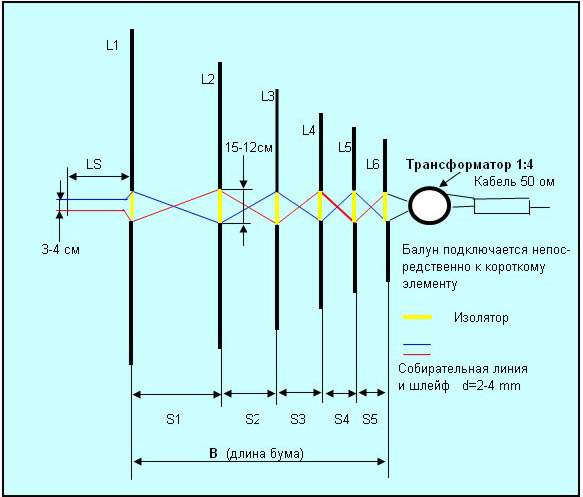
· The
accepted
designations:
·
L1- length of an element.
· S1-
Distance
between elements.
·
LS- Agreeing made circuit line.
·
B - In Length of boom.
· K -
To
Settlement factor.
· t - Factor
of
a progression.
·
l - Length of a wave.
· N -
Quantity
of elements.
|
LS = 112
|
t
= 0.82259
|
K = 3.514
|
B = 600
|
|
Long of Elenents L sm
|
Distance between
elements S sm
|
|
|
L1 = 1070
|
S1 = 171
|
|
|
L2 = 880
|
S2 = 141
|
|
|
L3 = 724
|
S3 = 115
|
|
|
L4 = 595
|
S4 = 95
|
|
|
L5 = 490
|
S5 = 72
|
|
|
L6 = 403
|
|
|
|
|
|
|
|
|
|
The aerial was assembled and lifted on height of 12 meters about a
wooden country house through an easy telescopic mast. The cheap rotating
mechanism of the Chinese manufacture intended for rotation of television
aerials.
The received technical parameters can be estimated as exceeding
given in the beginning (except for 14 mHz,
since height of rise for this range is small). The measurements of
parameters were carried out on all ranges, switching WARC with the radioamateur who is taking place on distance 15 kms of direct visibility. The received characteristics
on the average Front / Beck - 54/56; Front /
Side - 52; Front / Direct - 59 + 20 db
Factor of the reflected wave in all a range from 14 up to 29 mHz has appeared constant 1.3 in any measured point of
the specified range. On frequencies 13.2 and 30 mHz
it aspired to infinity. The gauging was carried out indicator SWR of
transceiver Icom - 746.
It is necessary to note large criticality of the aerial to located
beside to metal subjects and height of rise. The aerial at first was
tested at height of 7.5 meters and the result of tests on frequency 18 mHz has shown, that at such height the forward petal
is dim also ratio F/B no more than 5-8 db.
Some short wave men negatively concern to aerials of a type Log Yagi, considering them " by the collectors of noise ".
I agree with them under one condition is has a place, if the receiver
with preselector, having a wide range and weak
dynamic range is applied. Usual Yagi
itself works as preselector with good quality
and reduces the requirements to the characteristics of the receiver.
Therefore I advise radioamateurs at use Log Yagi to apply additional
preselector
or receiver with the high characteristics, it completely will remove
problems caused by the application Log Yagi.
For short wave men who desire to calculate the aerial are give
formulas of account according which are resulted the described design .
Quantity of elements and bottom frequency get out arbitrary. It is not
recommended, at a range of the aerial 14 -28 mHz,
the quantity of elements less than 5/6 - efficiency of the aerial
sharply falls.
L1 = l/2; at the rate of the bottom working frequency (14.0 mHz).
Ln = 405 sm for
the top frequency 29 mHz, proceeding from the
review of industrial and radioamateur designs
(that contradicts the theory, but the practical
gaugings
prove a choice on measured SWR).
L2 = L1* t; L3 = L21* t; etc.
S2 = S1 * t; S3 = S2 * t; etc.
t
= n-1Ö -Lmin / Lmax
;
K= 1 + t + t2 + t3 .. + tn-2
S1 = B / K ;
LS = 0.95 *
S1 ;

In connection with reception many of E-mail of the letters with
questions concerning a design, parameters and account of the aerial, I
created the program of automatic account logoperiodic
antenna. The program is created under Excel and automatically compute all
parameters of the aerial and its amplification.
Can will change:
· Top and
bottom frequency;
·
Length of
boom;
·
Quantity of elements from 5 up
to 18.
The demo program can be taken from http://www.qsl.net/ru3uj/logyagi.zip
For reception of the working version write to me ru3uj@mail.ru
73 Roman RU3UJ
PS: Excuse for my bad English language.
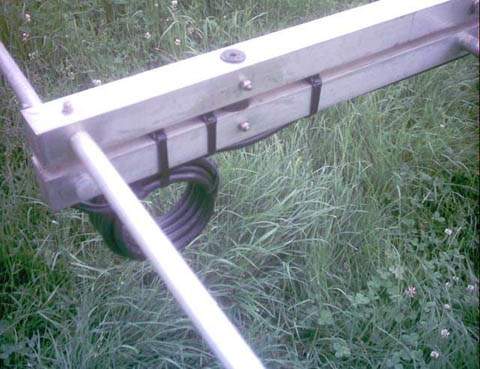
ON5YK
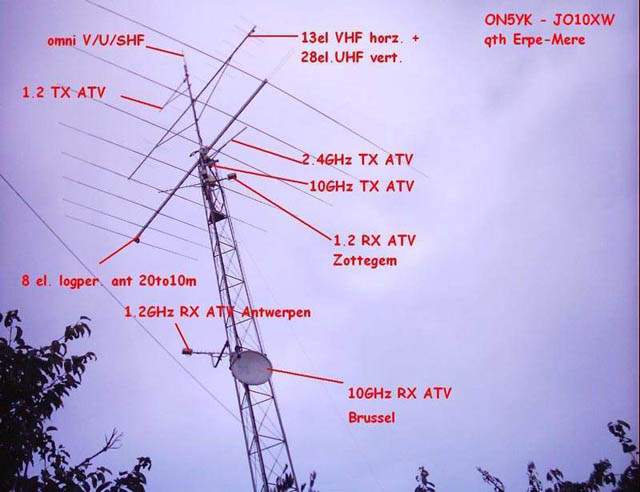
UA1BJ
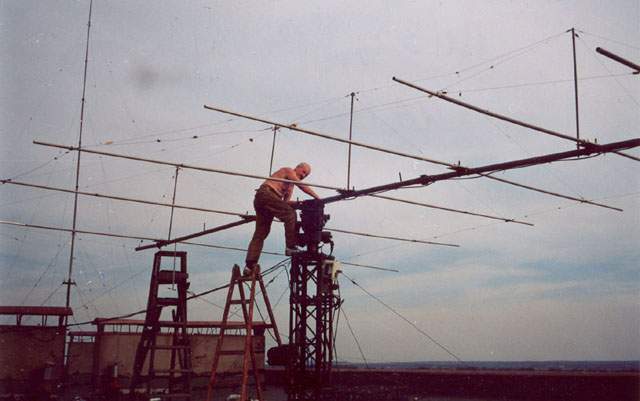
UA0QMH
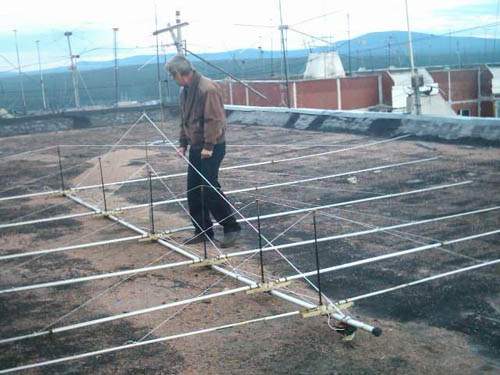
UR5TW
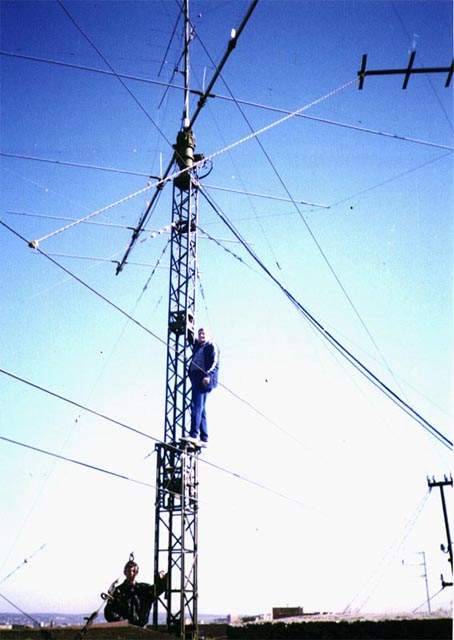
UR7TO
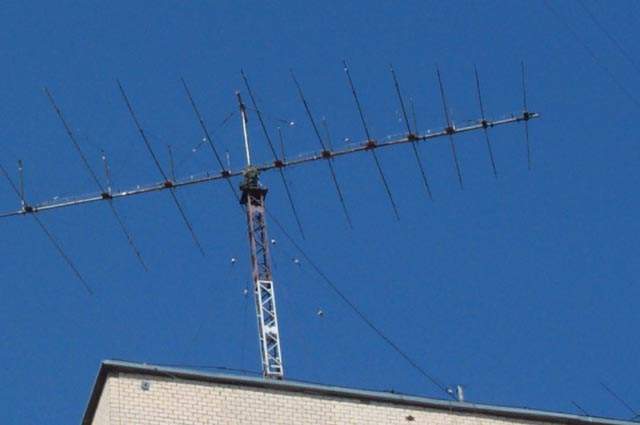
UA0SJ
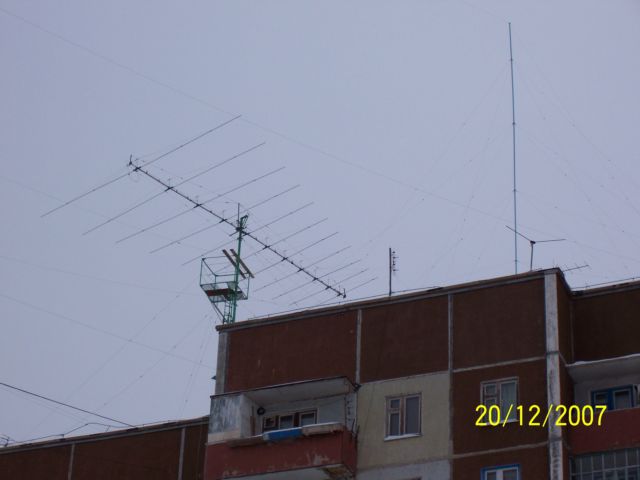
EW8DQ
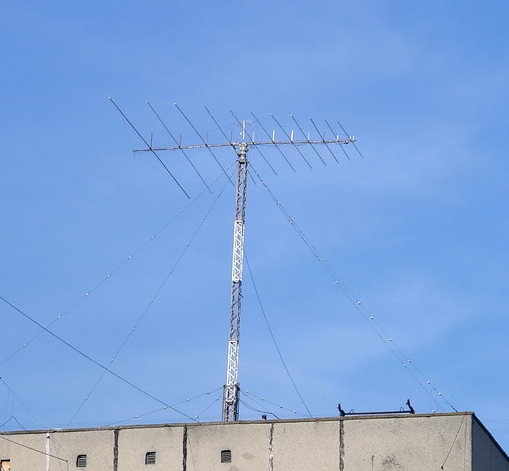
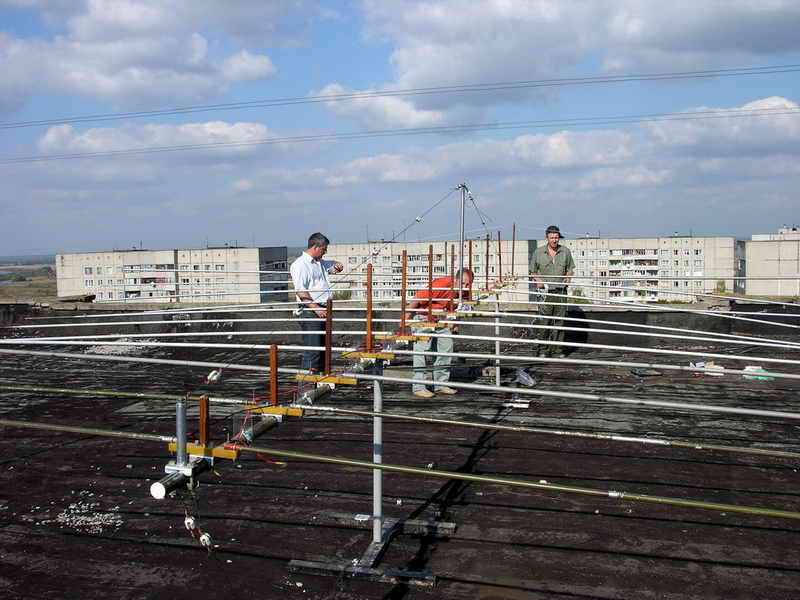
|